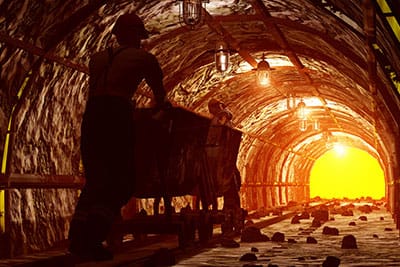Rolling back of coal mining regulations a safety concern
Recently some regulations on coal mining pollution have been lifted, leading to concerns for public health and safety.

The coal mining industry is a part of the livelihood of people wherever the mineral is to be found, and West Virginia is one of the places where this is especially true. The state is one of the biggest hubs of coal mining, and this is in part due to the massive amount of reserves buried in mountain ranges throughout it. According to an article by Scientific American, one mind in West Virginia takes up over 10,000 acres, while as a whole, Central Appalachia has has had 10 percent of its land used for surface mining operations.
This prevalence in coal mining in the area has led to a lot of contesting opinions from locals in the area, with some believing it provides jobs and wealth to the community, and others bemoaning the damage to the local environment which is becoming more apparent. The discussion has erupted in recent months since President Trump signed an order rescinding some protective regulations set in place by Obama that were meant to avoid pollution in the local streams. The unfortunate fact is that studies have shown that the risks to the health of human populations in the nearby vicinity to coal mines may be at greater risk.
The damage to streams
The rule that had previously been in place obligated mining companies to return streams to their natural state after operations, and during these operations required them to monitor the state of the water. One way that the impact of mining on streams was observed was by monitoring conductivity levels via a unit of measurement known as “microsiemens.” A healthy body of water typically has, according to a researcher from Duke University, a measurement of 150 microsiemens per centimeter. When the team from Duke measured water downstream from coal mines, they discovered levels above 1,900 microsiemens per centimeter. The most unsettling thing is that this water appears normal and clean to the naked human eye, despite the fact that it is polluted and unhealthy.
Breathing in toxins
Another major impact of the expansion of coal mining in the area is also unseen. The Interim Chair of the Department of Occupational and Environmental Health Sciences at West Virginia University states that surface mining activities have been disturbing measurable amounts of ultrafine dust particles into the air that can contain harmful chemicals. As the mining process pulverizes and crushes dust into finer and finer bits, the toxic materials in the earth that would normally be too big to enter the human body are crushed into such a fine size that they can pass through the skin and lungs, poisoning those who are overexposed.
A community at risk
If someone local to West Virginia becomes ill, especially with a respiratory illness or some form of toxicity, it is important to look at how close they live to coal mines and whether they work in the industry or not. Toxicity from coal mining operations is a real health hazard for workers, and the medical costs and suffering caused by being poisoned in such a way can be difficult to deal with. An attorney in the local area may be able to help someone in such a situation to get compensated financially.

